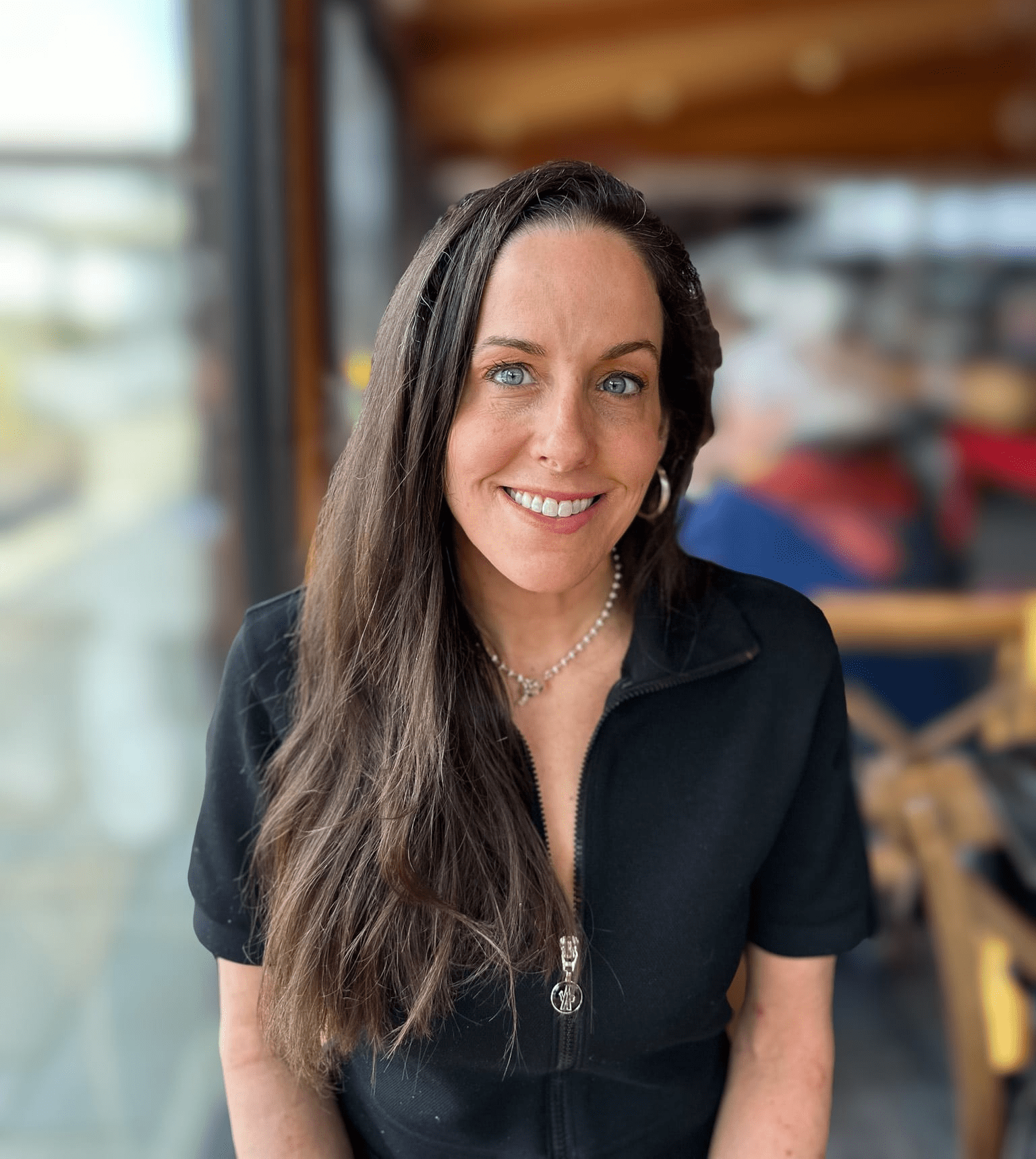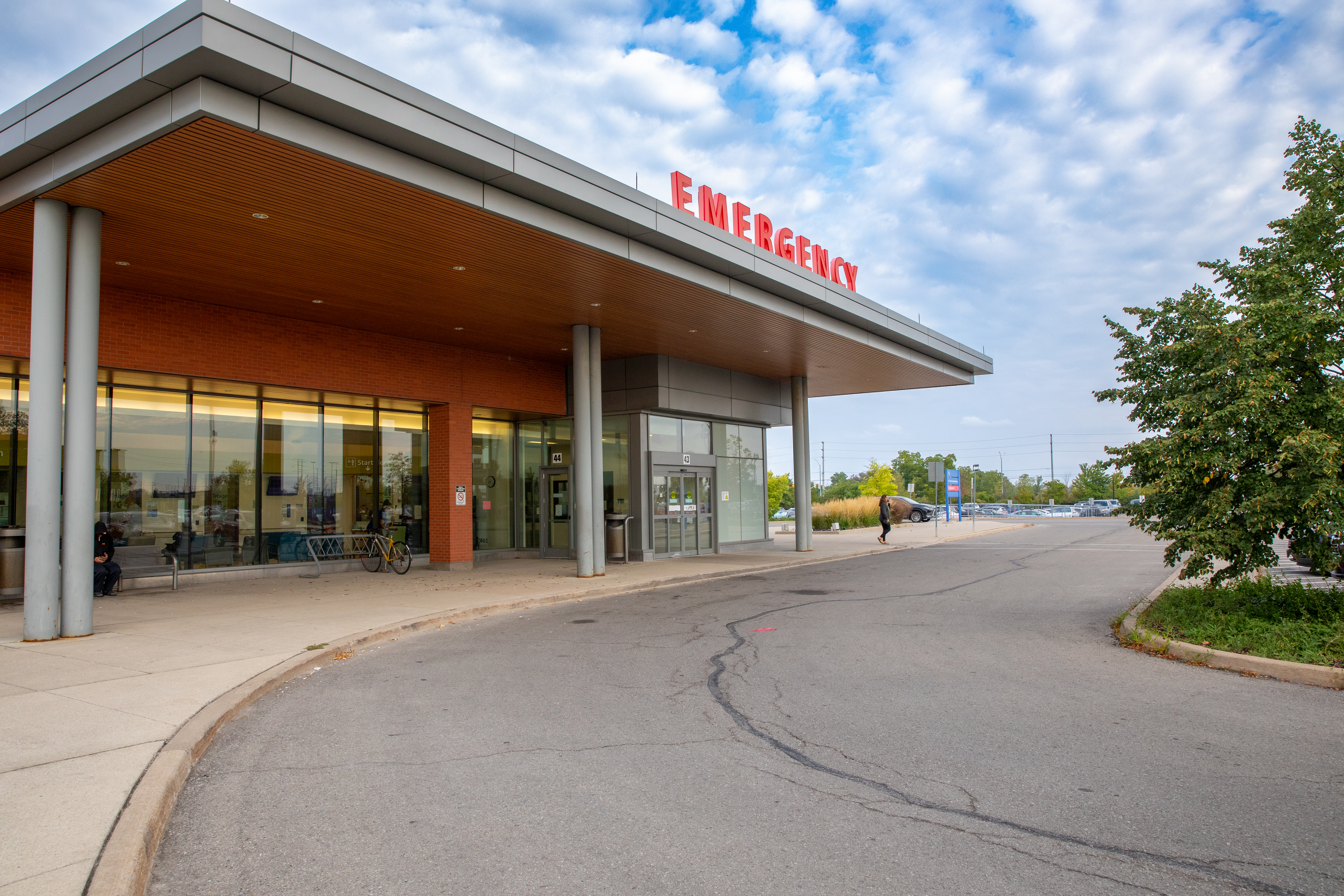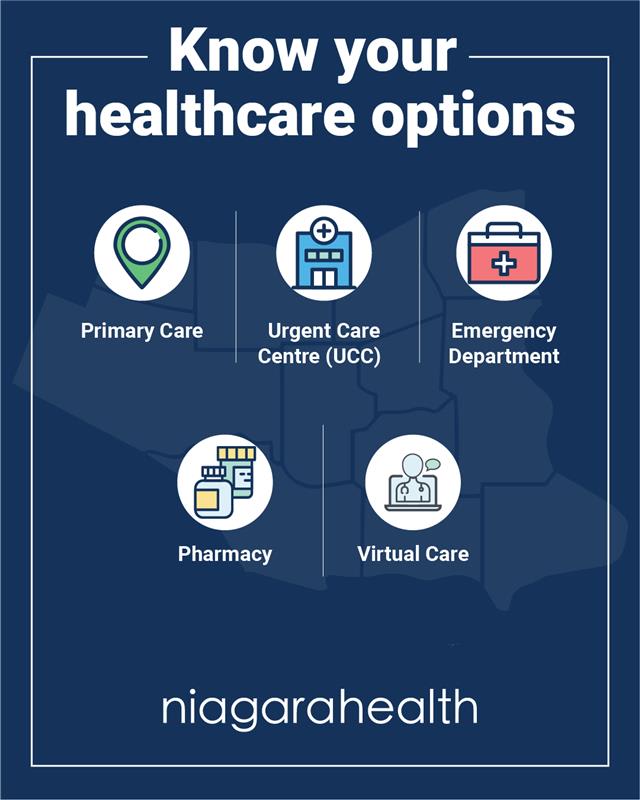In the heart of Niagara’s fast-paced Emergency Departments (EDs), where pain, fear and uncertainty often walk through the door hand in hand, Dr. Melanie Senechal is a steady force of compassion and care. A seasoned emergency physician with more than a decade of service at the Marotta Family Hospital, Dr. Senechal is what she calls “a lifer” — someone who describes her work as not just a job, but as a calling.
 “I’ve been with the team since 2012, and honestly, there’s nothing else I’d rather do,” she says. “This work fills my cup.”
“I’ve been with the team since 2012, and honestly, there’s nothing else I’d rather do,” she says. “This work fills my cup.”
From the outset, it’s clear that Dr. Senechal’s motivation runs deeper than medical charts and shift schedules. She thrives on the variety of patients and cases, treating everyone from infants to older adults, managing everything from broken bones to life-threatening emergencies. But for her, the medicine is only part of it.
“At the heart of it all, I just love people. Being able to offer care and compassion every day is incredibly meaningful to me.”
Originally from New Brunswick, Dr. Senechal moved to Ontario in 2005 for medical school and eventually settled in Niagara with her husband and two children. The decision to stay was both personal and professional: “There are five hospitals in the region and that made it a great fit. But mostly — I just really like it here.”
What sets her apart is not only her clinical skills but the emotional openness she brings to every patient interaction.
“If a patient is struggling — say we’ve just diagnosed cancer — I’ll cry with them. I’m not a cement box. I treat people like they are my family. That’s what they deserve,” she says.
The ED is a demanding and fast-paced environment. Long wait times can leave patients feeling frustrated and staff burnt out. Dr. Senechal is candid about the challenges.
“We need more doctors and nurses. Some days we’re short clerks too, and that means more running around. More staff would absolutely help,” she says.
Despite Niagara Health’s robust recruitment efforts, both locally and internationally, Canada’s healthcare system is facing a critical staffing crisis. Many nurses and physicians are nearing retirement, while increased workloads and long wait times — amplified by the COVID-19 pandemic — pushed many others to leave the profession. Rural and remote communities face even greater challenges in recruiting and retaining healthcare workers, particularly physicians, specialists and mental health professionals.
Globally, the World Health Organization (WHO) predicts a shortage of 10 million health workers by 2030.
But even on the toughest days, Dr. Senechal doesn’t lose sight of the privilege it is to serve.
“I pray before every shift. I don’t walk into the ER alone — I bring the big guy with me,” she says with a smile. “That keeps me grounded.”
 Emergency departments are where people come during their worst moments. Some arrive in pain, some in fear and others in anger or despair. It’s easy to forget, in those moments, that behind every ID badge is someone like Dr. Senechal, showing up day after day, ready to help — no matter how long the wait or how difficult the case.
Emergency departments are where people come during their worst moments. Some arrive in pain, some in fear and others in anger or despair. It’s easy to forget, in those moments, that behind every ID badge is someone like Dr. Senechal, showing up day after day, ready to help — no matter how long the wait or how difficult the case.
She also plays a key role in training the next generation of physicians through McMaster University’s Michael G. DeGroote School of Medicine.
“I want students to see that it’s okay to care deeply. This job is intense, but patients need more than just treatment — they need empathy.”
Beyond the hospital walls, Dr. Senechal is a mother and a wife, who strives to take care of her health both physically and mentally. Her kids, aged eight and 10, keep her grounded in the everyday joys of life.
“Work/life balance is critical. I have to stay well if I want to keep doing this forever — which I do,” she says.
Dr. Senechal encourages everyone to learn about their healthcare options and choose the right place for care. Not every medical concern belongs in the ED.
“We’re seeing patients for things that belong in primary care — like mild hypertension. We need more family doctors and we need the public to know when to go where.”
In Niagara, care is available in many forms — from family doctors and walk-in clinics, to Urgent Care Centres , Virtual Urgent Care and now pharmacies. For non-life-threatening issues such as sprains, coughs, urinary tract infections or minor allergic reactions, these options can provide faster, more appropriate care. Know your healthcare options
Every time you make the right choice about where to seek care, you’re helping emergency physicians like Dr. Senechal provide timely treatment to those who need it most.
“I love being on the front lines. It’s who I am,” she says. “And yes, the emergency department can feel hectic but I acknowledge my emotions and move on. It helps that I have great colleagues. We support each other.”
In an environment filled with urgency and unpredictability, it’s people like Dr. Senechal — and the teams who support her — who remind us of the people behind the noisy, bright and busy hospital.


